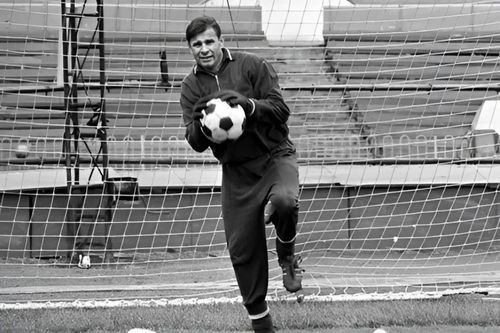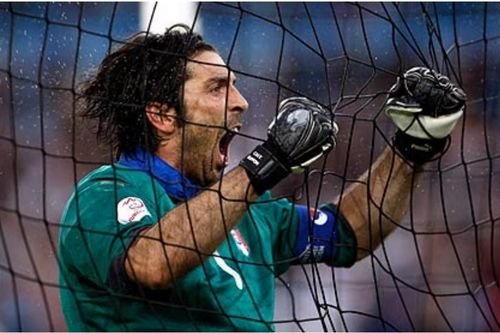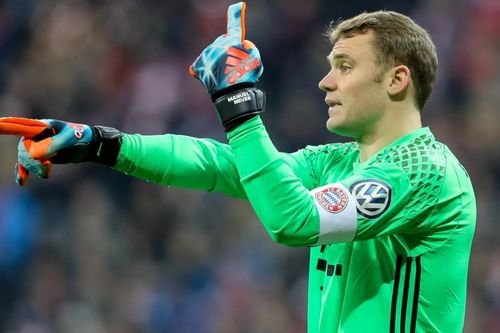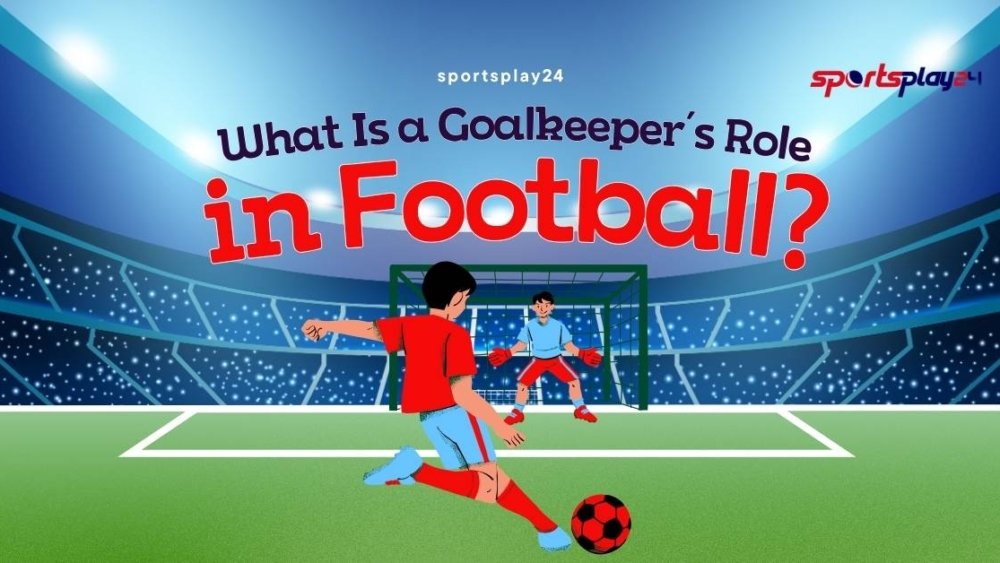In football, every position matters, but the goalkeeper’s role stands apart. A goalie can preserve a season, but a striker might win you a game. The goalkeeper is the backbone of a football team because they are the last line of defense and often the first point of attack.
Think about it: one mistake from a midfielder might go unnoticed, but one slip from the goalkeeper usually changes the scoreboard. That pressure shapes the way keepers play, focused, resilient, and alert at every second.
Modern football shows this even more. Goalkeepers today don’t just stop shots. They command the defense, read the game, and launch counter-attacks with precise passes. Clubs like Bayern Munich and Manchester City highlight this evolution, with keepers like Manuel Neuer and Ederson acting almost like an extra defender.
Duties of a Goalkeeper in Football
- Shot-stopping: This is the most obvious task. Goalkeepers must react in fractions of a second to block powerful shots. Think of Manuel Neuer saving a close-range strike or David de Gea stretching for a fingertip save; these moments decide matches.
- Controlling the penalty area: A skilled goalie maintains control of the 18-yard box. They intercept crosses, punch away corners, and give defenders confidence. Without this presence, strikers can easily exploit gaps.
- Distribution and passing: Modern football expects goalkeepers to play with their feet. Whether it’s a quick throw to start a counter or a precise long pass to switch play, distribution keeps the team moving.
- Putting the defence together: The goalie can see the entire field. They shout instructions, mark danger, and position defenders. In many ways, they act as the team’s on-field coach.
Rules Every Goalkeeper Must Follow
Handling the ball inside the box
A keeper is the only player allowed to use their hands, but only within their penalty area. The moment they step outside, they must play like an outfield player, using feet, chest, or head.
The back-pass rule
Since 1992, goalkeepers haven’t been allowed to pick up the ball if a teammate deliberately passes it back with their feet. They must use their feet to clear or control it. This change pushed keepers to improve their passing and composure under pressure.
Time control and wasting rules
The ball can only be held by a goalie for six seconds. Deliberate time-wasting, such as delaying goal kicks, can result in a yellow card. In tight matches, referees are quick to act on this.
Safety and equipment rules
Gloves are standard, but wearing colors that clearly stand out from teammates and opponents is a must. Referees, players, and spectators can all quickly identify the keeper thanks to this.
Essential Skills for a Successful Goalkeeper
| Skill | Why It Matters |
| Positioning & Anticipation | Helps the goalkeeper cut off angles and predict shots before they happen. |
| Communication & Leadership | Organizes the defense, prevents mistakes, and ensures everyone knows their role. |
| Agility & Reflexes | Essential for saving fast, close-range shots and reacting to unexpected deflections. |
| Decision-Making Under Pressure | Determines whether to stay on the line, rush out, or distribute the ball smartly. |
Evolution of the Goalkeeper Role in Football
Over time, a goalkeeper’s job in football has undergone significant modification. In the early days of the game, keepers were seen as pure shot-stoppers. Their job was simple: stand on the line, block attempts, and clear danger. There was little expectation for them to use their feet or take part in the build-up play.
That picture looks very different today. Modern football demands goalkeepers who can play like an extra outfield player. Passing, composure under pressure, and even starting attacks have become essential parts of the role. This shift is most evident in the rise of the sweeper-keeper, where players like Manuel Neuer set new standards by rushing off their line, intercepting through balls, and distributing long passes with pinpoint accuracy.
Technology and rules have also shaped this evolution. The back-pass rule, introduced in 1992, forced goalkeepers to become better with their feet, as they could no longer pick up deliberate passes from teammates. The arrival of VAR and stricter handling rules further changed how keepers approach one-on-one situations and penalty calls.
Legendary Goalkeepers Who Defined the Role
Lev Yashin – The Black Spider
 The only goalie to win the Ballon d’Or, Lev Yashin, is regarded as a trailblazer. Playing for the Soviet Union in the 1950s and 60s, he earned the nickname The Black Spider for his all-black kit and lightning-fast saves. His fearless style and command of the box set a new standard for keepers worldwide.
The only goalie to win the Ballon d’Or, Lev Yashin, is regarded as a trailblazer. Playing for the Soviet Union in the 1950s and 60s, he earned the nickname The Black Spider for his all-black kit and lightning-fast saves. His fearless style and command of the box set a new standard for keepers worldwide.
Gianluigi Buffon – The Symbol of Consistency
 Buffon, Italy’s legendary shot-stopper, combined agility with calm decision-making. With over two decades at the top level, including World Cup glory in 2006, he showed that longevity and discipline are just as important as talent. Buffon’s leadership and reliability made him a role model for future generations.
Buffon, Italy’s legendary shot-stopper, combined agility with calm decision-making. With over two decades at the top level, including World Cup glory in 2006, he showed that longevity and discipline are just as important as talent. Buffon’s leadership and reliability made him a role model for future generations.
Manuel Neuer – The Sweeper-Keeper
 Modern football wouldn’t look the same without Neuer. Known for his “sweeper-keeper” approach, he redefined how goalkeepers contribute. Instead of just saving shots, he steps out of his box, intercepts long balls, and builds attacks from the back. His impact was clear during Germany’s 2014 World Cup win, where his aggressive yet calculated style left strikers frustrated.
Modern football wouldn’t look the same without Neuer. Known for his “sweeper-keeper” approach, he redefined how goalkeepers contribute. Instead of just saving shots, he steps out of his box, intercepts long balls, and builds attacks from the back. His impact was clear during Germany’s 2014 World Cup win, where his aggressive yet calculated style left strikers frustrated.
These goalkeepers didn’t just defend; they reimagined the position. Each brought something new: bravery, consistency, and innovation, proving that the goalkeeper’s role in football is as much about influence as it is about saves.
Conclusion: The Goalkeeper as More Than Just the Last Line of Defense
A goalkeeper’s role in football is far more than simply blocking shots. The modern keeper is a leader, a strategist, and often the spark that starts an attack. From commanding the penalty area to delivering accurate passes that break opposition lines, today’s goalkeeper is both a defender and a playmaker.
Think of Manuel Neuer stepping out as a sweeper-keeper or Gianluigi Buffon organizing his defense with authority; their influence stretches well beyond the goalpost. The position demands quick thinking, strong communication, and nerves of steel.
In the end, the goalkeeper isn’t just the last line of defense; they are the foundation on which the team’s confidence is built. A single save can lift spirits, change momentum, and decide the outcome of a match. That’s why understanding the duties and rules of a goalkeeper isn’t just about knowing football; it’s about appreciating the heartbeat of the game.


